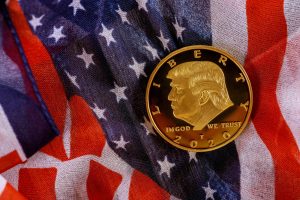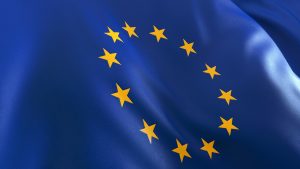A coalition of U.S. small businesses filed suit on Monday, arguing that President Donald Trump’s recent wave of tariffs violates constitutional and statutory limits on presidential authority. The case, filed in the U.S. Court of International Trade, alleges the administration unlawfully invoked the International Emergency Economic Powers Act (IEEPA) to justify sweeping import duties, particularly those imposed on goods from China.
Businesses Claim Tariffs Exceed Presidential Power
The suit was brought by the Liberty Justice Center, a conservative legal advocacy group, on behalf of five small companies that say they’ve suffered “severe financial harm” due to tariffs imposed under Trump’s latest trade directives. The plaintiffs argue that the IEEPA requires a demonstrable “unusual and extraordinary threat” to national security or the economy—criteria they say have not been met.
Jeffrey Schwab, senior counsel at the Liberty Justice Center, stated, “No one person should have the power to impose taxes that have such vast global economic consequences. The Constitution gives the power to set tax rates—including tariffs—to Congress, not the President.”
The case comes just days after China retaliated by raising tariffs on U.S. goods to 125%, following Trump’s own increase to 145% on Chinese imports. The trade war has reignited concerns over global supply chains, price inflation, and market instability.
White House Defends Tariff Powers
In response, White House spokesperson Harrison Fields defended the administration’s legal authority, calling the U.S. trade deficit a “national emergency” that warrants action under IEEPA. “President Trump is standing up for Main Street by putting an end to our trading partners—especially China—exploiting the U.S.,” Fields said in a statement.
The administration argues that chronic trade imbalances harm domestic industry and justify unilateral tariff action as part of a national economic defense strategy.
Constitutional Challenge Gains Momentum
This lawsuit is the second major legal challenge to Trump’s tariff program in as many weeks. On April 3, the New Civil Liberties Alliance filed a similar case in the U.S. District Court for the Northern District of Florida on behalf of a Florida-based company called Simplified, which imports materials from China for use in its planner products.
Andrew Morris, litigation counsel at NCLA, said the administration’s actions represent a “clear misuse” of emergency powers, violating the Constitution’s separation of powers by circumventing Congress’s role in trade and taxation policy.
What’s at Stake
Legal experts note that these cases could reshape the scope of executive power in trade policy, especially as courts weigh whether emergency economic statutes like IEEPA can be used to justify sweeping, long-term tariffs without congressional approval.
If successful, the lawsuits could force the administration to roll back current tariffs or seek new legislative authority, a move that could impact hundreds of billions of dollars in global commerce and reset trade relations—particularly with China.







